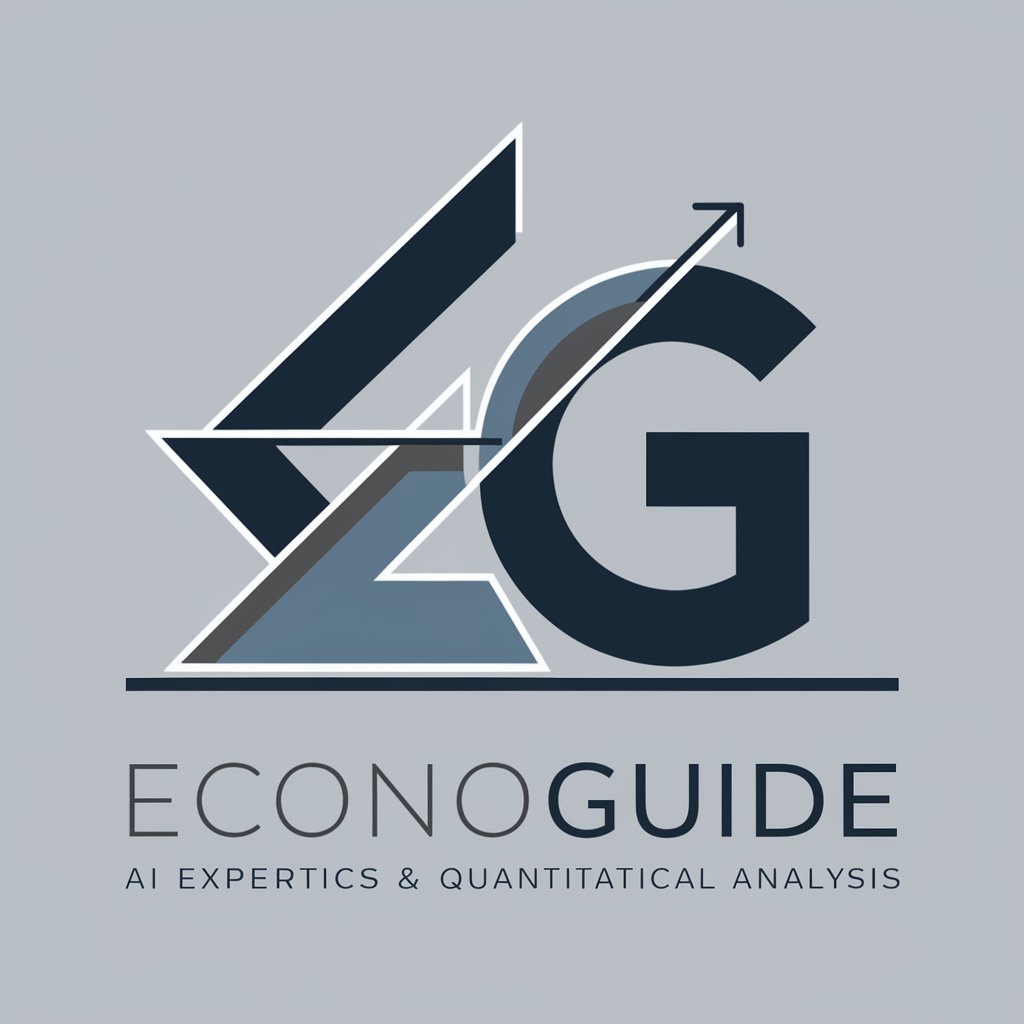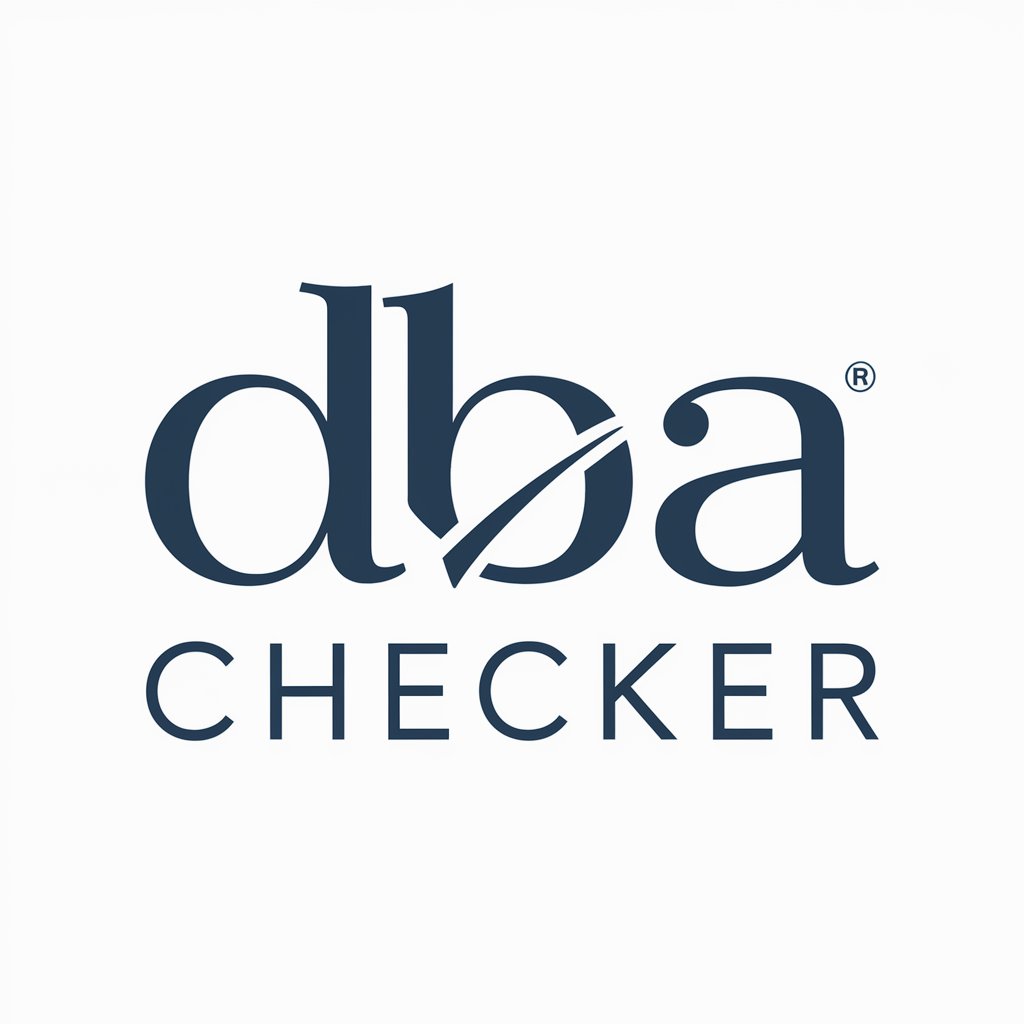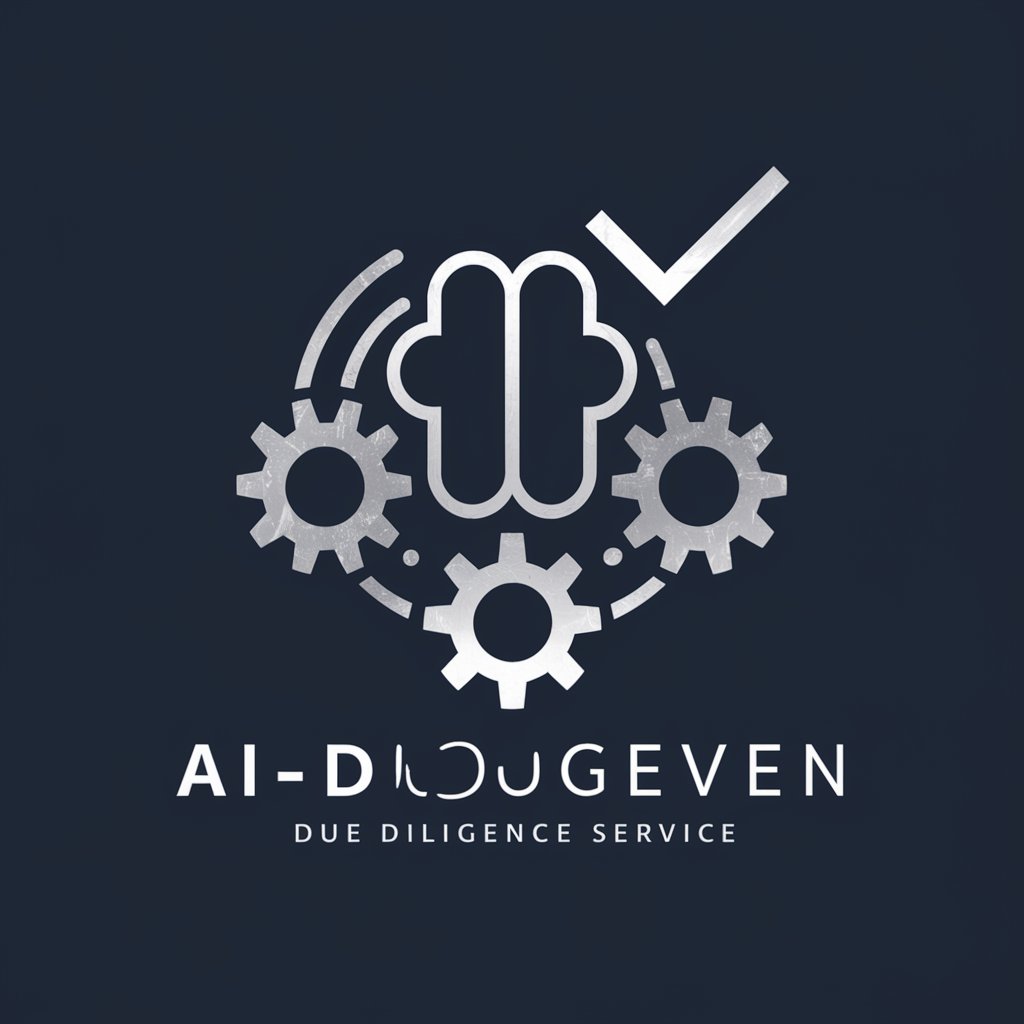EconoGuide - Econometric Analysis Assistance

Welcome to EconoGuide, your expert resource for econometrics and quantitative analysis.
AI-powered Econometric Insight
How can I interpret the results of a multiple regression analysis in an econometric study?
What are the key differences between fixed effects and random effects models in panel data analysis?
Can you explain the steps involved in conducting a hypothesis test for econometric data?
What considerations should I take into account when choosing an econometric model for my research?
Get Embed Code
Overview of EconoGuide
EconoGuide is designed to serve as a comprehensive assistant in the field of econometrics, bridging the gap between theoretical understanding and practical application. It's crafted to support users in interpreting empirical analyses, selecting appropriate regression models, conducting quantitative analysis, and critically evaluating empirical work within social sciences and economics. EconoGuide synthesizes econometric theory with real-world applicability, offering guidance through examples, clarification of complex concepts, and detailed walkthroughs of empirical analysis. An illustrative scenario might involve guiding a user through the steps of selecting and interpreting a multiple regression analysis to understand the impact of education on wages, incorporating considerations like potential confounders and the robustness of the model. Powered by ChatGPT-4o。

Core Functions of EconoGuide
Interpreting Empirical Analyses
Example
Explaining the significance of coefficients in a regression model used to study the effect of public policy changes on economic growth.
Scenario
A policy analyst evaluating the economic impact of a new tax law.
Choosing Between Regression Models
Example
Advising on the selection between linear regression and logistic regression for analyzing binary outcomes like election results (win or lose) based on economic indicators.
Scenario
A political scientist investigating the predictors of electoral success.
Conducting Quantitative Analysis
Example
Guiding through a time-series analysis to forecast economic trends based on historical data.
Scenario
An economist looking to predict future economic downturns or booms.
Critically Interpreting Empirical Work
Example
Evaluating the validity and reliability of empirical research findings in the context of existing literature and theoretical frameworks.
Scenario
A graduate student conducting a literature review for their thesis on the economic impacts of immigration.
Who Benefits from EconoGuide?
Academic Researchers
Individuals engaged in empirical research within economics and social sciences, who require in-depth understanding and application of econometric models and methods. EconoGuide helps them in refining their research design, analysis, and interpretation of complex datasets to support their hypotheses.
Policy Analysts and Economists
Professionals analyzing economic policies, labor markets, and other socio-economic factors, who benefit from the ability to accurately interpret empirical data and assess policy implications. EconoGuide provides tools for robust analysis and evidence-based policy making.
Graduate and Postgraduate Students
Students pursuing advanced degrees in economics, political science, and related fields who need to grasp econometric techniques for their dissertations and research projects. EconoGuide offers a learning companion that aids in the comprehension and application of econometric principles.
Data Analysts in Social Sciences
Data professionals working with quantitative data in sociology, psychology, and related disciplines, looking to apply econometric methods for analyzing trends, behaviors, and societal patterns. EconoGuide assists in enhancing their analytical capabilities with econometric insights.

Using EconoGuide: A Step-by-Step Guide
Initiate Trial
Access a complimentary trial at yeschat.ai without needing to sign up or subscribe to ChatGPT Plus.
Identify Needs
Clearly define your econometric analysis or research questions to effectively leverage EconoGuide's capabilities.
Navigate Features
Explore the tool's functionalities, focusing on regression analysis, empirical interpretation, and quantitative assessment.
Engage with EconoGuide
Interact by posing specific, detailed econometric queries or scenarios for tailored guidance and analysis.
Apply Insights
Incorporate EconoGuide's feedback into your research, academic writing, or empirical analysis for enhanced understanding and accuracy.
Try other advanced and practical GPTs
Reward Genius
Innovating Motivation Through AI

Joi
Empathy at Scale: Your AI Companion

RoboGen Decompose and Generate Reward or Primitive
Simplify robotics with AI-powered task analysis

Pro de la Refonte de Contenu
Revitalize Your Social Content with AI

Android Dev Assistant
AI-powered Android Development Assistant

Unity AI Assistant
Empowering Unity Developers with AI

Your Beloved One
Reconnect with Lost Loved Ones

Right or Wrong
Deciphering Ethics with AI

Grammar - Relative Clause Generator
AI-powered Latin grammar mastery.

Experto Startup Innovative
Empowering innovative startups and SRLs with AI-driven insights.

DBA Checker
Navigate freelance compliance effortlessly

2/02 2024 Acessa Internet para Due Diligênce
Elevate due diligence with AI-powered internet research.

Frequently Asked Questions About EconoGuide
What is EconoGuide?
EconoGuide is an AI-powered tool designed to assist with econometric analyses, offering guidance on regression models, quantitative analysis, and empirical interpretation within social sciences and economics.
How can EconoGuide improve my research?
EconoGuide can enhance your research by providing detailed insights into selecting appropriate regression models, conducting robust quantitative analyses, and critically interpreting empirical results.
Can EconoGuide help with academic writing?
Yes, EconoGuide is equipped to assist with academic writing by offering empirical evidence-based insights and suggestions for structuring econometric arguments and analyses.
Is EconoGuide suitable for beginners?
EconoGuide is designed for a range of users, from beginners seeking foundational understanding to advanced researchers requiring in-depth analysis, thanks to its tailored guidance and adaptable complexity.
How does EconoGuide handle complex econometric queries?
EconoGuide employs advanced AI algorithms to dissect complex econometric queries, providing clear, concise, and applicable responses that bridge theoretical concepts with practical applications.
